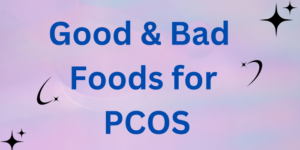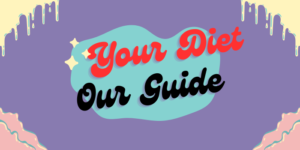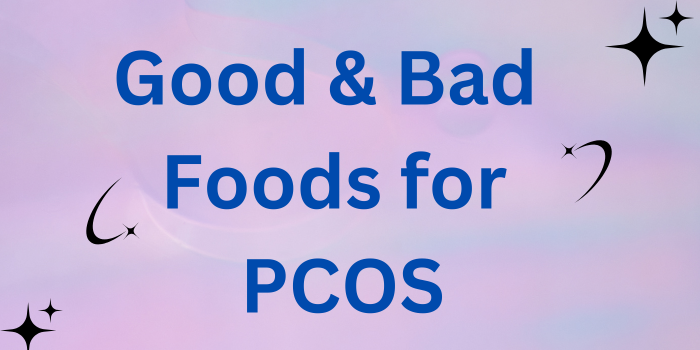Good and bad foods for PCOS:
1. Polycystic Ovary Syndrome (PCOS) can be effectively managed through a well-balanced diet to stabilize blood sugar, reduce inflammation, and enhance overall well-being. Below are some dietary suggestions and food choices that may assist in alleviating PCOS symptoms:
Good and bad foods for PCOS
Foods to Incorporate
Lean Proteins:
– Chicken Breast: Mostly rich in proteins and have low fats.
– Turkey: Good source for lean protein.
– Fish: Particularly fatty varieties like salmon, which are abundant in omega-3 fatty acids.
Whole Grains: (Good and bad foods for PCOS)
– Quinoa: A nutritious source of protein and fiber.
– Brown Rice: Contains more fiber.
– Oats: Beneficial for maintaining blood sugar levels.
Non-Starchy Vegetables: (Good and bad foods for PCOS)
– Leafy Greens: Like spinach and kale.
– Cruciferous Vegetables: Include vegetable like broccoli and Brussels sprouts.
– Bell Peppers: Packed with antioxidants and essential vitamins.
Fruits:
– Berries: Strawberries, blueberries, and raspberries are lower in sugar and rich in antioxidants.
– Apples and Pears: High in fiber and lower on the glycemic index compared to other fruits.
Healthy Fats:
– Avocados: A good way to get monounsaturated fats.
– Nuts and Seeds: pumpkin seeds, almonds, sunflower seeds, chia seeds, and flaxseeds.
– Olive Oil: Preferably extra virgin for cooking and dressings.
Legumes:
– Lentils: Rich in protein and fiber.
– Chickpeas: Excellent for protein and fiber, beneficial for blood sugar stabilization.
Low-Fat Dairy or Alternatives: (Good and bad foods for PCOS)
– Greek Yogurt: Choose unsweetened varieties.
– Almond or Soy Milk: Suitable for those with dairy sensitivities.
Spices and Herbs:
– Turmeric: Recognized for its anti-inflammatory benefits.
– Cinnamon: May improve insulin sensitivity.
Foods to Limit or Avoid (Good and bad foods for PCOS)
Refined Carbohydrates:
– White Bread and Pastries: High glycemic index, potentially causing blood sugar spikes.
– Sugary Cereals: Generally high in sugar and low in fiber.
Sugary Foods and Beverages:
– Sodas and Energy Drinks: High in sugar, contributing to weight gain.
– Candy and Sweet Snacks: Can promote insulin resistance.
Processed Foods:
– Packaged Snacks: Often contain unhealthy fats, sugars, and sodium.
– Fast Food: Typically high in unhealthy fats and refined carbohydrates.
Read More: https://dietcheckhub.com/category/blog/
https://health.gov/our-work/nutrition-physical-activity/dietary-guidelines




